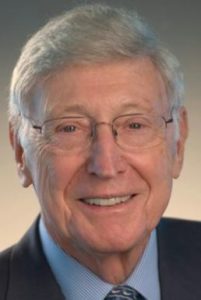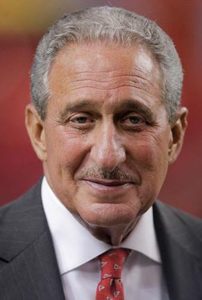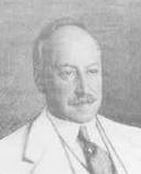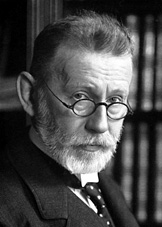The Home Depot

Bernie Marcus
Bernard Marcus (b. 1929) was born in New Jersey to Russian-Jewish immigrants. His dream was to become a doctor, but he could not afford the tuition. Instead, he studied pharmacy at Rutgers University (where he was part of the Jewish AEPi fraternity) and paid his way by building cabinets with his father. While working at a drug store after graduating, Marcus realized that he is far more interested in business than pharmacy. He went on to work in various retail jobs, eventually becoming the CEO of a home improvement store. There he met Arthur Max Blank (b. 1942). Blank had studied business in college, and worked in various accounting jobs until becoming VP of finance at the same home improvement store as Marcus. The two were both fired from the company in 1978. Undeterred, they decided to start their own home improvement store, with a new “warehouse” concept, and a focus on superb customer service and a vision of giving back to the community. The two hired a fellow employee who had been fired, Ron Brill, as well as businessman Pat Farrah, who had once owned a home improvement store. The following year they opened the first Home Depot in Atlanta. Just two years later, they branched out into Florida and went public. Within a decade, Home Depot had become America’s largest home improvement store. Today, it has over 2200 stores across the US, Canada, and Mexico, with some 385,000 employees, and is the world’s largest buyer of construction materials. True to their original vision, The Home Depot Foundation has donated over $200 million in support of various causes, including Habitat for Humanity. They have been lauded for their environmental conservation, avoiding lumber purchases from endangered forests, running the largest light bulb recycling program in the US, and spending $100 million over ten years to build 100,000 green homes and plant 3 million trees. Home Depot also sponsors the US and Canada Olympic Teams.

Arthur Blank
Marcus and Blank served as CEO and president of Home Depot for 19 years. Upon retirement, Blank purchased the Atlanta Falcons football team, and recently founded a new Major League Soccer team, Atlanta United FC. He is also a noted philanthropist, donating millions to various causes, including a recent $7 million to Denver’s National Jewish Health Center. Blank has signed The Giving Pledge, committing to donating at least 50% of his wealth to charity. Marcus has signed the Pledge, too, and was one of America’s most charitable donors in 2005. Among his many contributions, he has given $25 million to Autism Speaks, $15 million for a new nanotechnology research centre, and $5 million to co-found the Israel Democracy Institute. He now chairs his Marcus Foundation, which has given countless sums to children’s causes, Jewish communities, medical research, and support for military veterans. When asked why he was so passionate about charity, he said: “It goes back to what I learned as a young Jewish boy growing up in Newark, N.J. with immigrant parents: You have an obligation to give back to society. Thirty years ago, when I had no money, I worked for various charities, gave my heart, soul and time – now I can also give money.”
Words of the Week
We have neither taken other men’s land, nor are we in possession of other men’s property, but of the inheritance of our forefathers; it was wrongfully held by our enemies at one time, but we, grasping our opportunity, hold firmly the inheritance of our forefathers.
– Simon Maccabee (Book of Maccabees I,15:34-35)


